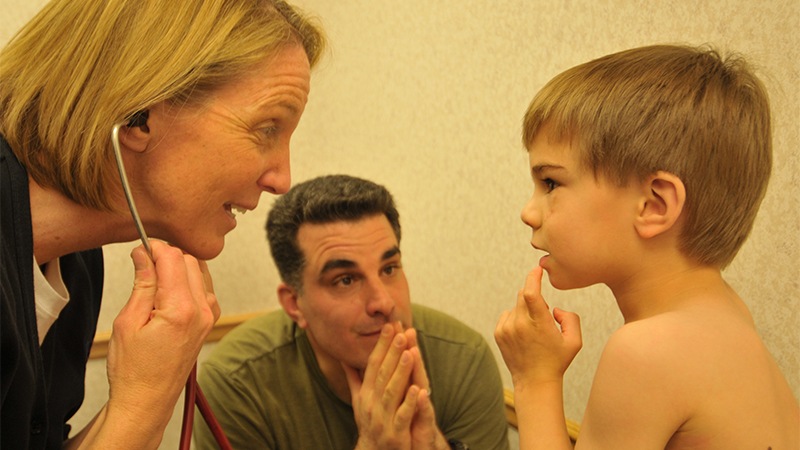Advanced Pediatrics Associates

Photo by David Cornwell
The distraught mother called her children’s pediatrician in tears. Her husband had lost his job. Their health insurance was gone, too. She just found out she was pregnant – with twins, as she would later learn – and feared her children would have no health care.
Stephanie Stevens, MD, a partner with Advanced Pediatric Associates in Aurora, Centennial and Parker, reassured the mother. Regardless of the family’s insurance status, she would care for the new babies and their older siblings.
For three decades, Advanced Pediatrics has been committed to caring for all children, whether they have private insurance or depend on public programs like Medicaid and Child Health Plan Plus (CHP+). So when life changed dramatically for the young mother of twins, Stevens helped her overcome the stigma of needing Medicaid, assisted with paperwork and found an obstetrician to oversee the pregnancy.
“She was very resistant at first. She didn’t want to be on public assistance and wanted to pay her own bills,’’ Stevens said. “But the babies’ health came first. The twins were born prematurely and needed extra care, but now they’re thriving and growing.”
At least 10 percent of the children Advanced Pediatrics serves have government insurance. The percentage sometimes rises as high as 18 percent, where it is hovering now because of the economic downturn. Government programs pay doctors less than private insurers do, but at Advanced Pediatrics, managers carefully monitor costs and balance their patient load so they can continue to offer care to all children. Doctors and other staff members sacrifice some income in order to make a difference in their community.
“Advanced Pediatrics is a highly efficient and effective practice with a good heart,” said Steven Poole, MD, founder and director of the Colorado Children’s Healthcare Access Program (CCHAP) who also serves as professor and vice chair, Department of Pediatrics for the School of Medicine, University of Colorado, and is a clinical team member at The Children’s Hospital.
“So far, we’ve worked with pediatric providers in 15 counties along the Front Range and Summit County,” Poole said. “In 2006, only 20 percent of pediatricians along the Front Range would provide care for children covered by these programs. CCHAP now supports 90 percent of these practices, serving approximately 60,000 low-income children.”
With a three-year grant from The Colorado Trust, CCHAP is encouraging private practices to follow in the footsteps of groups like Advanced Pediatrics, devoting at least 10 percent of their practice to care for publicly insured children.
Long committed to caring for vulnerable populations, Stevens helped start a free clinic while still in medical school more than a decade ago. The clinic still serves single moms and their children one night a week at Warren Village, a Denver housing center that helps low-income single parents move from public assistance to self-sufficiency.
Stevens would like to see many more providers make a similar commitment. “It would make a huge difference in the lives of many,” she said.
Administrator Denise Hall shared techniques that help the practice stay profitable while serving all families:
- Monitor patient populations regularly. Advanced Pediatrics providers see about 275 patients a day at three locations. When the number of government insured patients climbs close to 20 percent, Hall temporarily stops accepting new Medicaid patients until the numbers return to a sustainable balance.
- Boost efficiency. Advanced Pediatrics has a central call line for appointments and triage nurses.
- Manage costs. All providers receive a 2% annual pay raise. No doctor is penalized for seeing a large percentage of government-insured children.
- Stick to budgets and revisit decisions regularly. Hall and the provider partners meet monthly to review the budget and make financial decisions.
- Seek support. Providers tap CCHAP to support their social workers, especially when mental health resources are needed.